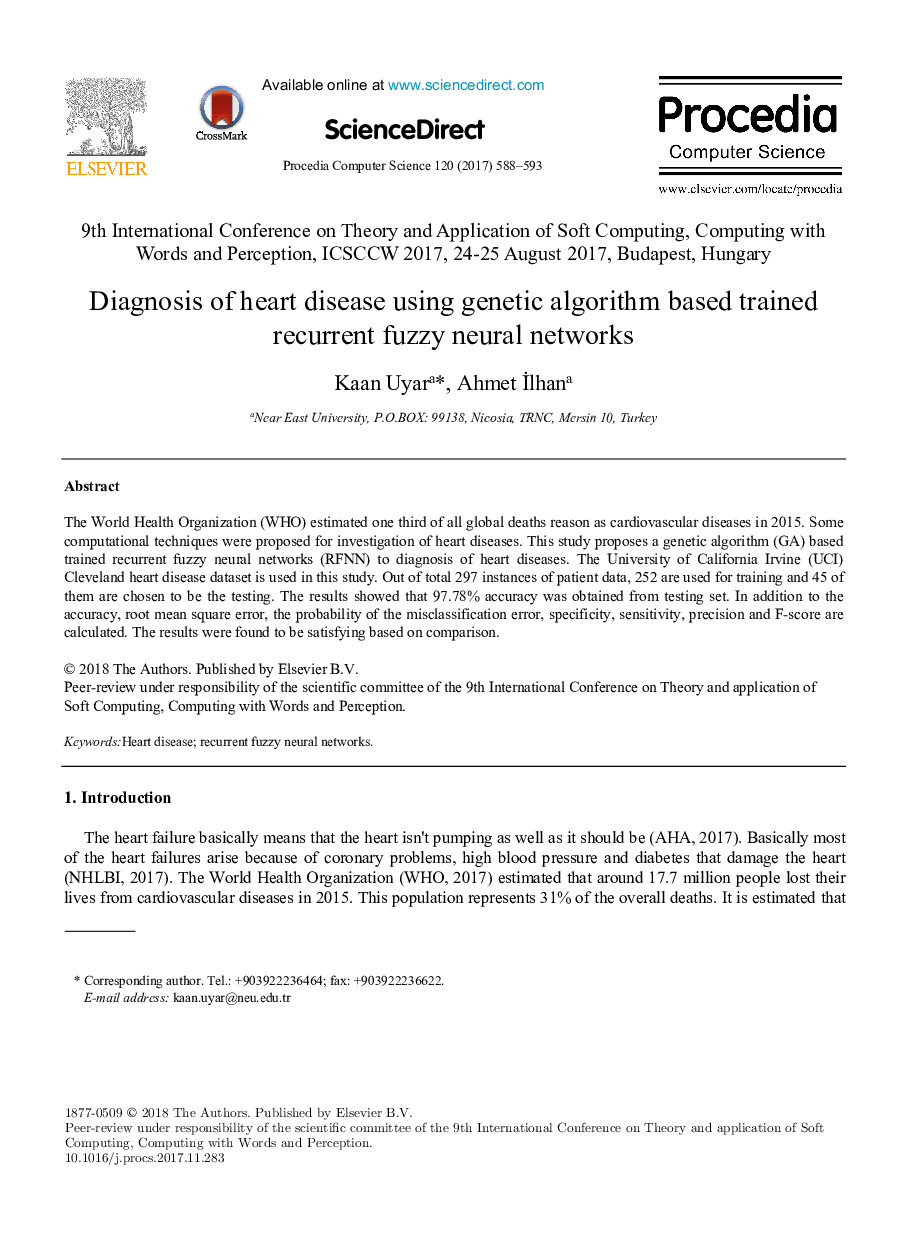| Article ID | Journal | Published Year | Pages | File Type |
|---|---|---|---|---|
| 6901940 | Procedia Computer Science | 2017 | 6 Pages |
Abstract
The World Health Organization (WHO) estimated one third of all global deaths reason as cardiovascular diseases in 2015. Some computational techniques were proposed for investigation of heart diseases. This study proposes a genetic algorithm (GA) based trained recurrent fuzzy neural networks (RFNN) to diagnosis of heart diseases. The University of California Irvine (UCI) Cleveland heart disease dataset is used in this study. Out of total 297 instances of patient data, 252 are used for training and 45 of them are chosen to be the testing. The results showed that 97.78% accuracy was obtained from testing set. In addition to the accuracy, root mean square error, the probability of the misclassification error, specificity, sensitivity, precision and F-score are calculated. The results were found to be satisfying based on comparison.
Related Topics
Physical Sciences and Engineering
Computer Science
Computer Science (General)
Authors
Kaan Uyar, Ahmet Ä°lhan,
